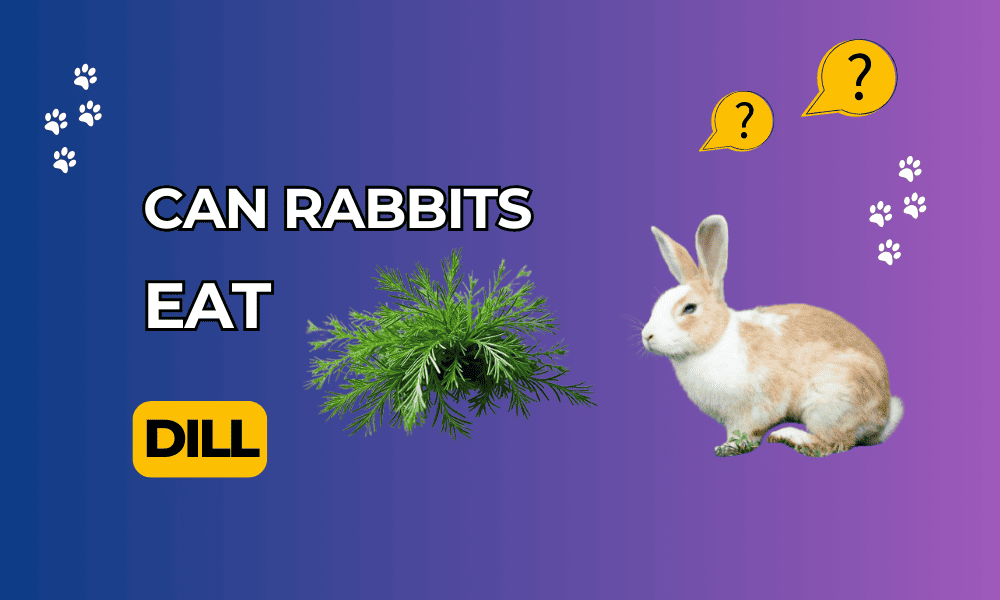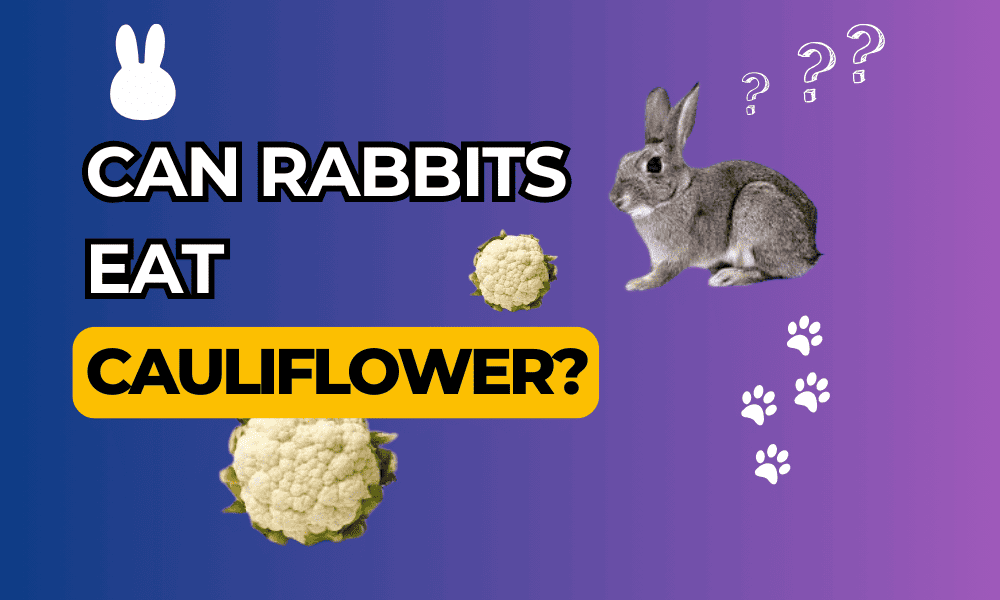
Rabbits have specific dietary needs, and not all greens are suitable for them. If you’re considering adding dill to your rabbit’s diet, you may have a few questions. Is dill safe for rabbits? Does it provide any nutritional benefits? Will my rabbit even eat it? Understanding the impact of different herbs on your rabbit’s health is essential. Here’s what you need to know before offering dill to your furry companion.
Rabbits have sensitive digestive systems, so every new food must be introduced carefully. It’s not just about finding the right foods, but also about introducing variety and making their diet interesting and nutritious. After all, we wouldn’t want our furry friends eating the same old hay day in and day out. That’s where herbs like dill come into play. But before you add it to your rabbit’s diet, it’s essential to know the benefits, risks, and proper feeding guidelines.
Dill is a fragrant herb known for its feathery leaves and fresh, tangy flavor. It’s packed with vitamins, minerals, and antioxidants, making it a great addition to many diets. But does it offer the same benefits for rabbits? And more importantly, can it be harmful?
In this guide, we’ll explore whether dill is safe for rabbits, its nutritional value, how much to feed, and potential risks. You’ll also learn expert tips on safely introducing dill to your bunny’s meals. Whether you’re a new or experienced rabbit owner, this guide will help you make the best choice for your furry friend’s health.
Key Takeaways: Is Dill Safe for Rabbits?
Yes, dill is safe for rabbits to eat. This herb is non-toxic and can be a healthy addition to your rabbit’s diet when given in moderation.
Fresh dill, including its leaves and stems, can offer nutritional benefits and make a great treat for rabbits. However, it should never replace your rabbit’s primary food source: hay.
Nutritional Benefits of Dill for Rabbits
Dill is a nutritious herb that offers several health benefits for rabbits:
- High in Fiber: Like most leafy greens, dill contains a decent amount of fiber, which supports a rabbit’s digestive health.
- Rich in Vitamins and Minerals: Dill is a good source of vitamins A and C, which are essential for maintaining a rabbit’s immune system and overall health. It also contains calcium and iron in small amounts.
- Antioxidant Properties: Dill has antioxidants that help protect your rabbit’s body against oxidative stress and may even aid in detoxification.
Why Should You Include Dill in a Rabbit’s Diet?
Incorporating dill into your rabbit’s diet can add variety, which is important for both nutrition and enrichment. Rabbits enjoy munching on different textures and flavors, and dill can be a tasty alternative to their usual leafy greens. Additionally, dill can support dental health by providing a different chewing experience, which helps wear down a rabbit’s continuously growing teeth.
Related article: Can Rabbits Eat Raspberries?
Nutritional Facts of Dill for Rabbits
Dill is a flavorful herb that can contribute beneficial nutrients to a rabbit’s diet. Here are some key nutritional facts about fresh dill (per 100 grams), which can help you understand why it’s a healthy treat for rabbits:
- Calories: 43 kcal
- Protein: 3.5 g
- Fat: 1.1 g
- Carbohydrates: 7 g
- Fiber: 2.1 g
- Water Content: Approximately 85-90%

Vitamins and Minerals
Dill is packed with essential vitamins and minerals that can support a rabbit’s health:
- Vitamin A: Dill contains beta-carotene, which is converted to vitamin A in the body. This vitamin is vital for maintaining good vision, a healthy immune system, and proper skin health.
- Vitamin C: While rabbits can synthesize their own vitamin C, this nutrient still supports overall immune health and helps in the healing of tissues.
- Calcium: Dill has a small amount of calcium, which is necessary for healthy bones and teeth, but it should be fed in moderation to avoid any risk of urinary problems.
- Iron: Dill provides iron, which is essential for forming red blood cells and transporting oxygen throughout the body.
- Potassium: This mineral is important for nerve function, muscle contraction, and maintaining fluid balance.
Antioxidants
Dill also contains several antioxidants, such as flavonoids, polyphenols, and tannins. These compounds help protect the body against cell damage, support detoxification, and promote overall health.
Low Sugar Content
One significant benefit of dill is its low sugar content, making it a healthier option compared to sugary treats like fruits. This low sugar content helps prevent digestive issues and maintains a rabbit’s overall well-being.
So it is clear that dill, its leaves and stem are not only safe for rabbits but also provide a range of nutrients that support their health. When fed in moderation, it can be a valuable addition to a balanced diet.
Also read: Can I Feed My Rabbit Cooked Vegetables?
Can Rabbits Eat Dill Flowers or Baby Dill?
Yes, rabbits can eat dill flowers and baby dill. Dill flowers, while less commonly fed, are non-toxic and provide a slightly different taste and texture for your rabbit to enjoy. Baby dill, which is just a younger version of the dill plant, is also safe and can be fed in the same way as mature dill.
How Much Dill Can You Feed Your Rabbit?
While dill is safe for rabbits, it should be offered in moderation. Here’s how you can safely introduce dill into your rabbit’s diet:
- Start Slowly: If your rabbit hasn’t eaten dill before, start with a small amount to see how they react. Offer one or two sprigs and observe for any signs of digestive upset, such as changes in stool consistency.
- Limit to a Few Sprigs Per Day: Even after your rabbit gets used to dill, limit it to no more than three sprigs per day. Overfeeding any herb, including dill, can disrupt their delicate digestive system.
- Rotate with Other Herbs: To ensure a balanced diet, rotate dill with other safe herbs like basil, cilantro, or parsley.
Potential Risks of Feeding Dill to Rabbits
While dill is generally safe, there are some potential risks to keep in mind:
- Digestive Upset: Introducing any new food too quickly can lead to digestive problems such as gas, bloating, or diarrhea. Always introduce the dill gradually and monitor your rabbit’s response.
- Pesticides and Chemicals: Make sure the dill is organic or thoroughly washed to remove any pesticide residues. Rabbits are sensitive to chemicals, which can be harmful to their health.
- Overfeeding Herbs: While dill is healthy in moderation, it should not replace hay, which is the cornerstone of a rabbit’s diet. Overfeeding herbs or vegetables may reduce hay consumption, leading to dental and digestive issues.
How to Safely Introduce Dill into a Rabbit’s Diet
- Wash Thoroughly: Before feeding, rinse the dill with water to remove dirt and possible pesticide residues.
- Introduce Gradually: Start by giving your rabbit a small piece and watch for any adverse reactions over the next 24 hours.
- Mix with Other Greens: You can mix dill with other leafy greens that your rabbit is already familiar with, like romaine lettuce or kale.
- Avoid Feeding Multiple New Foods at Once: Only introduce one new food at a time so you can identify the cause of any digestive issues.
How Does Dill Compare to Other Herbs?
Dill can be a great addition to your rabbit’s diet, but how does it stack up against other common herbs?
- Basil: Like dill, basil is safe for rabbits and provides a unique flavor. It’s rich in vitamin K but should also be given in moderation.
- Cilantro: Cilantro is a favorite among many rabbits. It’s high in vitamins A and C, making it another healthy option for occasional feeding.
- Parsley: Parsley is rich in nutrients but also contains higher levels of calcium compared to dill. Rabbits prone to urinary problems should consume parsley in moderation.
What Herbs Are Unsafe for Rabbits?
Not all herbs are safe for rabbits. Avoid feeding the following toxic herbs:
- Aloe
- Eucalyptus
- Jasmine
- Milkweed
- Oak Leaves
- Buttercup
Always double-check whether a herb is rabbit-safe before offering it as a treat.
Relevant Rabbits Diet Guide: Can Rabbits Eat Tomatoes?
Can Rabbits Eat Dill Pickles?
No, rabbits should not eat dill pickles. Pickles are high in salt, vinegar, and other preservatives that are harmful to rabbits. Feeding dill pickles to your rabbit can cause severe digestive issues and should be avoided entirely.
Tips for Storing and Preparing Dill for Rabbits
To keep dill fresh and nutritious, follow these tips:
- Store in the Refrigerator: Keep dill in a plastic bag or airtight container in the fridge to maintain freshness.
- Freeze for Later Use: If you have an excess amount of dill, freeze it. Frozen dill can be thawed and used to add variety to your rabbit’s diet, especially in off-season months.
- Add to Wet Vegetables: If you’re feeding dried dill, scatter it over wet vegetables to rehydrate it and bring out the flavor.
The Importance of a Balanced Diet
Although dill can add variety and nutrition to your rabbit’s diet, it’s crucial not to lose sight of their primary dietary needs:
- Hay Should Be the Staple: Hay, such as Timothy or meadow hay, should make up the majority of a rabbit’s diet. It provides essential fiber for digestive health and helps to wear down teeth.
- Include a Variety of Leafy Greens: Alongside hay, offer leafy greens daily to ensure a balanced intake of nutrients.
- Limit Fruits and Root Vegetables: While rabbits can eat some fruits and root vegetables like carrots, these should be given sparingly due to high sugar content.
Signs Your Rabbit Enjoys Dill
Some rabbits may be picky eaters, but here’s how you can tell if your rabbit enjoys dill:
- Eagerly Eats the Herb: If your rabbit comes to you or nibbles on dill enthusiastically, it’s a sign they enjoy the flavor.
- No Signs of Digestive Distress: If your rabbit doesn’t experience any changes in stool or behavior, dill is likely well-tolerated.
- Acts Curious or Sniffs the Herb: Some rabbits may take time to adjust to new foods. Even showing curiosity is a positive sign.
Conclusion
Dill is a safe, nutritious herb that can be a delightful treat for your rabbit when offered in moderation. It adds variety to their diet and provides vitamins, minerals, and antioxidants. However, always ensure that hay remains the main component of their diet, and introduce dill gradually. Avoid feeding dill pickles or any herbs that could be harmful. With these tips, you can confidently incorporate dill into your rabbit’s diet.
3. Is it safe to eat fresh dill?
Yes, fresh dill is safe and healthy for both humans and rabbits. It is a natural herb with vitamins and antioxidants.
4. Is dried dill safe for rabbits?
Yes, dried dill is safe, but fresh dill is generally preferred due to its higher water content.
5. Can baby rabbits eat dill?
It’s best to wait until a rabbit is at least 12 weeks old before introducing herbs like dill.
6. Why does my rabbit not seem interested in dill?
Just like people, rabbits have different taste preferences. Try offering other herbs to see what your rabbit enjoys.
7. Can rabbits eat dill leaves?
Yes, rabbits can eat dill leaves. They are safe, nutritious, and can be given as part of a balanced diet. Feed in moderation to avoid digestive issues.
8. Can rabbits eat dill stems?
Yes, rabbits can eat dill stems. They are fibrous and good for digestion, but they should be given in small amounts to prevent bloating.


